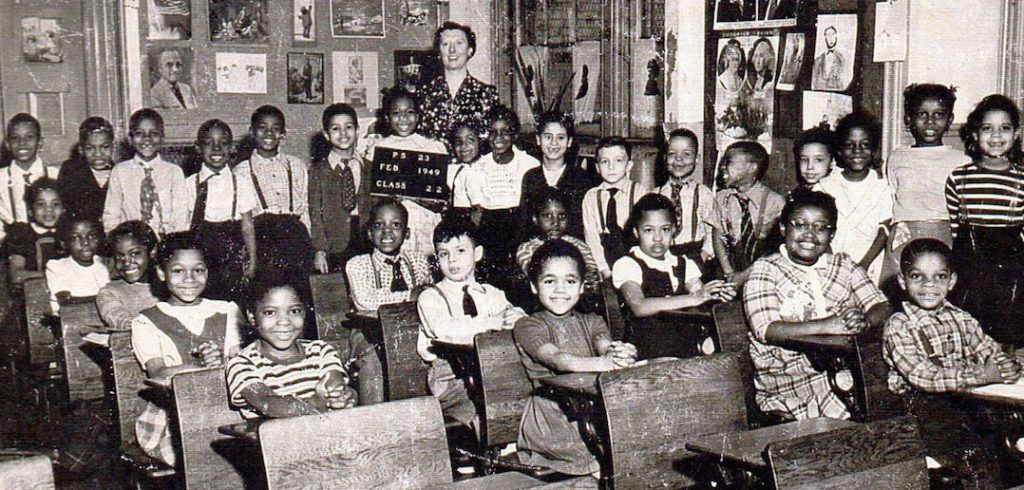“We had downloads from Ukraine and the Russian Federation on the same day—two countries at war with one another,” said Mark Naison, Ph.D., co-founder of BAAHP and professor of history and African & African American studies at Fordham. “It’s so exciting that people all over the world are interested in our interviews and essays.”
Downloads From Nearly Every Continent
BAAHP was founded more than two decades ago in collaboration with the Bronx County Historical Society in order to preserve the history of the Bronx and its people. The bulk of the archive contains verbatim transcripts of interviews with political leaders, educators, musicians, social workers, businesspeople, clergy, athletes, and leaders of community-based organizations who have lived and worked in the Bronx since the 1930s, in addition to scholarly essays about the Bronx. For many years, these articles lived on audio tapes and paper. In 2015, they were uploaded to a digital archive that made their stories fully accessible to the public.
Since then, thousands of scholars, students, and strangers have accessed the digital archive from around the world. People in Europe, Africa, Asia, Oceania, and the Caribbean have downloaded resources from the archive, according to data from Fordham Libraries. Online visitors in Singapore and Paris even downloaded the entire archive twice, said Naison.
Among the scholars is Peter Schultz Jørgensen, an urbanist and author in Denmark who is using information from the digital archive to complete his upcoming book “Our Bronx!”
“Portraying and documenting everyday life in the Bronx, as it once was, is essential in protecting the people of the Bronx from misrepresentation, while at the same time, providing valuable knowledge that can help shape their future,” Jørgensen said. “Just as BAAHP gathers the web of memory, my book is about the struggles that people and community organizations have waged and are waging in the Bronx. And more important, and encouraging, it talks about how they are now scaling up via the Bronx Wide Coalition and their Bronx Wide Plan for more economic and democratic control of the borough.”
The archive is also helpful for those who aren’t familiar with the Bronx, said Mattieu Langlois, a history Ph.D. student in Fordham’s Graduate School of Arts and Sciences.
“I’m from Canada, so I didn’t know much about the Bronx,” said Langlois, who served as a BAAHP graduate assistant, ensuring interviews were transcribed correctly and uploading them to the archive. “It’s a good source of information for many people.”
A Treasure Trove for Scholars
It’s unclear what thousands of other visitors are searching for in the archives, said Naison, but he suspects that some are scholars who are researching the history of hip-hop, a genre born in the Bronx that has influenced scores of artists, including Bronx-born rappers like Cardi B and Lil Tjay. Other scholars might be studying immigration—and the Bronx, a city heavily shaped by immigration, is a great model, said Naison.
“The Bronx has a global reputation for music, but also for immigration and the mixing of cultures,” Naison said. “And our archive brings that to life.”
‘I Hope People Use It To Think Differently About the Bronx’
Brian Purnell, Ph.D., FCRH ’00, a former BAAHP research director from 2004 to 2010 who helped to facilitate at least 50 interviews in the archive, said the archive is also useful for urban studies scholars who are studying how cities have changed over the decades.
“I hope people use it to think differently about the Bronx, to include the Bronx more deeply and broadly in urban studies in the United States,” said Purnell, now an associate professor of Africana studies and history at Bowdoin College, who uses the archive in his own research and in the classroom with his students. “I hope that it also expands how we think about Black people in New York City and in American cities in general from the mid-20th century onward.”
Naison said his team plans to upload more interviews to the archive—and that their work won’t stop there.
“It’s ongoing. It’s exciting,” said Naison. “And to know now that people all over the world are interested in this, it makes it even more motivating to keep it going.”

